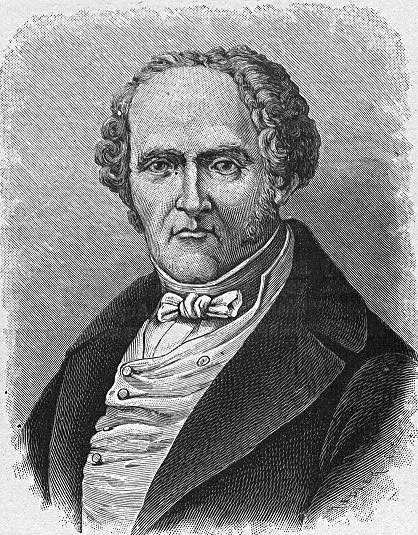Charles Fourier on the Revolution
Annotation
Charles Fourier (1772–1837) was a salesman for a cloth merchant in Lyons who conceived of a different form of social organization, called a "phalanx," that was part garden city and part agricultural commune. All jobs would rotate and a network of small decentralized communities would replace the state. He also believed that equal rights for women were necessary for social progress. His optimistic views on what society could look like earned him the epithet of "utopian socialist," but his views helped keep revolutionary principles alive in the public consciousness.
This source is a part of the Legacies of the Revolution source collection.
Text
After the philosophers had demonstrated their incapacity in their experimental venture, in the French Revolution, everyone agreed in regarding their science as an aberration of the human mind; their floods of political and moral enlightenment seemed to be nothing more than floods of illusions. Well! what else can be found in the writings of these savants who, after having perfected their theories for twenty-five centuries, after having accumulated all the wisdom of the ancients and moderns, begin by engendering calamities as numerous as the benefits which they promised, and help push civilized society back toward the state of barbarism? Such was the consequence of the first five years during which the philosophical theories were inflicted on France.
After the catastrophe of 1793, illusions were dissipated, the political and moral sciences were irretrievably blighted and discredited. From that point on people should have understood that there was no happiness to be found in acquired learning, that social welfare had to be sought in some new science, and that new paths had to be opened to political genius. It was evident that neither the philosophers nor their rivals possessed a remedy for the social distresses, and that their dogmas only served to perpetuate the most disgraceful calamities, among others poverty. . . .
Philosophy was right to vaunt liberty; it is the foremost desire of all societies' creatures. But philosophy forgot that in civilized societies liberty is illusory if the common people lack wealth. When the wage-earning classes are poor, their independence is as fragile as a house without foundations. The free man who lacks wealth immediately sinks back under the yoke of the rich. The newly freed slave takes fright at the need of providing for his own subsistence and hastens to sell himself back into slavery in order to escape this new anxiety that hangs over him like Damocles' sword. In thoughtlessly giving him liberty without wealth, you merely replace his physical torment with a mental torment. He finds life burdensome in his new state. . . . Thus when you give liberty to the people, it must be bolstered by two supports which are the guarantee of comfort and industrial attraction. . . .
Equality of rights is another chimera, praiseworthy when considered in the abstract and ridiculous from the standpoint of the means employed to introduce it in civilization. The first right of men is the right to work and the right to a minimum [wage]. This is precisely what has gone unrecognized in all the constitutions. Their primary concern is with favored individuals who are not in need of work. They begin with pompous lists of the elect from privileged families to whom the law guarantees an income of fifty or one hundred thousand francs for the simple task of governing the people or sitting in an upholstered seat and voting with the majority in a senate. If the first page of the constitution serves to provide administrators with guarantees of affluence and idleness, it would be well for the second page to pay some attention to the lot of the lower classes, to the proportional minimum and the right to work, which are omitted in all constitutions, and to the right to pleasure, which is guaranteed only by the mechanism of the industrial series. . . .
Let's turn to fraternity. Our discussion here will be amusing, at once loathsome and learned. It is amusing in view of the imbecility of the theories which have purported to establish fraternity. It is loathsome when one recalls the horrors that the ideal of fraternity has masked. But it is a problem which deserves particular attention from science; for societies will attain their goal, and man his dignity, only when universal fraternity has become an established fact. By universal fraternity we mean a degree of general intimacy which can only be realized if four conditions are satisfied:
Comfort for the people and the assurance of a splendid minimum;
The education and instruction of the lower classes;
General truthfulness in work relations;
The rendering of reciprocal services by unequal classes.
Once these four conditions are met, the rich Mondor will have truly fraternal relations with Irus who, despite his poverty, will have no need of a protector and no motive to deceive anyone, and whose fine education will enable him to associate with princes. . . . As for the present, how could there be any fraternity between sybarites steeped in refinements and our coarse, hungry peasants who are covered with rags and often with vermin and who carry contagious diseases like typhus, mange, replica and other such fruits of civilized poverty? What sort of fraternity could ever be established between such heterogeneous classes of men?
